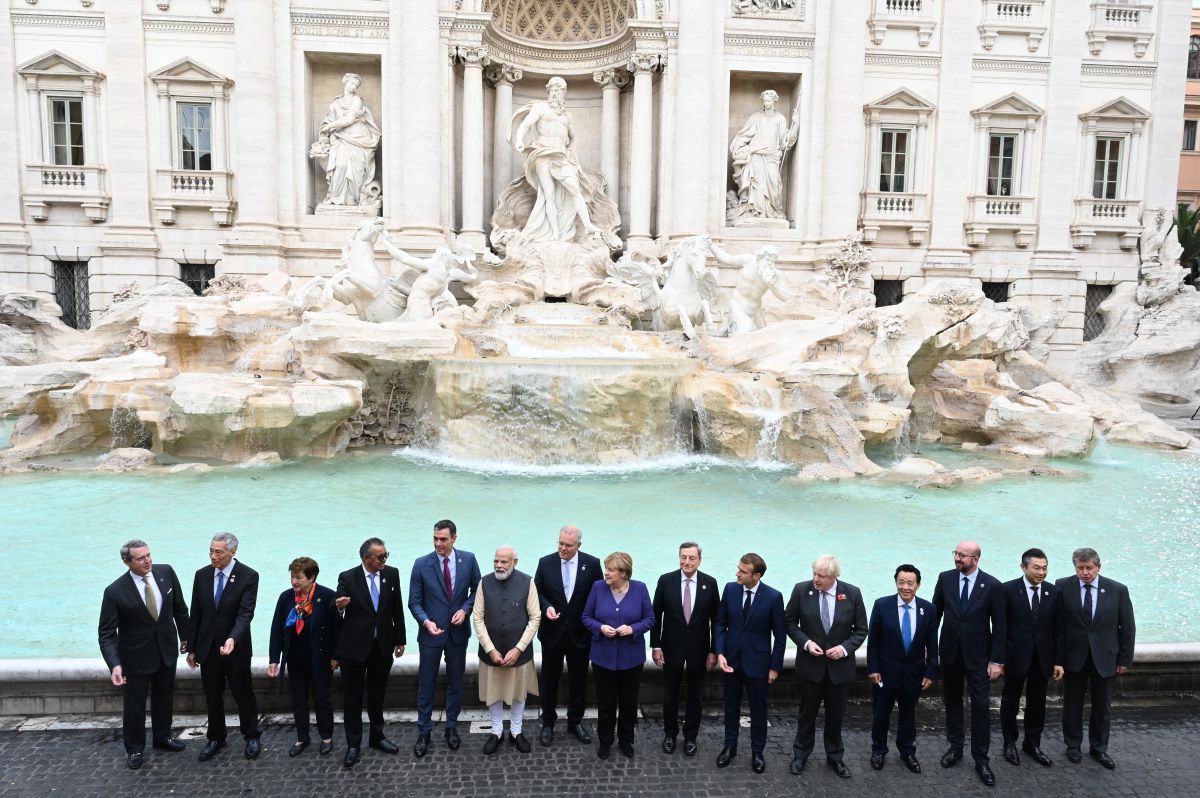G20 Rome Summit - Agreement on Vaccines and Taxes, Divisions on Climate
On 30-31 October in Rome, the leaders of major world economies met and made commitments on the global distribution of COVID-19 vaccines and changes in the international tax system, and split on climate action.
 Photo: Pool Moncloa/Borja Puig De La Be/Zuma Press/Forum
Photo: Pool Moncloa/Borja Puig De La Be/Zuma Press/Forum
Under what circumstances was the summit held?
It was the first in-person meeting of G20 leaders in two years, with a few notable leaders absent, including the president of Russia, and China’s chairman attending remotely. It took place during a period of increased COVID-19 cases in the world, the continued slow implementation of vaccination campaigns, mainly in developing countries, as well as difficulties in the global economy, including significant disruptions in supply chains and rising inflation. On the second day of the summit, when climate issues were to be discussed, the COP26 conference began in Glasgow, Scotland. Observers expected that the G20 would give impetus to the international climate talks with its decisions during the meeting.
What did leaders agree on about the pandemic and the economy?
In these areas, the G20 made several important commitments. The group supports the WHO target of vaccinating at least 40% of the world’s population against COVID-19 by the end of this year and 70% by mid-2022. It aims in particular to increase the supply of vaccines to poor and middle-income countries, including through their production on the spot. However, the G20 did not provide details, for example, how to finance these activities. The members also accepted the entry into force from 2023 of the deal on changes in the international tax system, including the establishment of a minimum corporate tax of 15%, agreed in the OECD and G20 framework. The group also supported the development of an initiative to restructure the debts of developing countries and provide them with the equivalent of $100 billion within the IMF (in the form of special drawing rights).
What is the assessment of the G20 climate decisions?
Decisions in this area can be considered not ambitious. The leaders of the G20, whose countries are responsible for around 80% of global greenhouse gas (GHG) emissions, emphasised their commitment to the implementation of the Paris Agreement and announced the end of financing of foreign coal investments by the end of this year. They also pledged to donate “as soon as possible” to developing countries the previously promised $100 billion annually for climate purposes. However, the G20 has not been able to identify a specific date to achieve net-zero GHG emissions. This is to happen “by or around mid-century”, with climate activists pushing for 2050 or earlier. Moreover, the Group’s members did not decide to suspend the implementation of coal projects in their countries. China, Russia, and India were among the opponents of more ambitious climate goals. The G20 position may thus make it more difficult to progress in the COP26.
What events took place on the occasion of the summit?
On the sidelines of the summit, U.S. President Joe Biden and the President of the European Commission Ursula von der Leyen agreed to lift the U.S. tariffs on EU steel and aluminium imposed during Donald Trump’s tenure, as well as additional EU charges introduced in response, including for food products. The U.S. and the EU have announced cooperation, among others, in responding to overproduction of steel and in terms of environmental standards in this sector. This creates another field for their cooperation (besides, e.g., trade and technology) on countering China, the largest steel supplier in the world. In Rome, the U.S. Secretary of State also held talks with the Chinese minister of foreign affairs, including to ease the recent tensions around Taiwan and prepare the ground for a Biden-Xi Jinping virtual meeting scheduled for this year. In addition, during the summit, the leaders of the U.S., UK, France, and Germany called on the Iranian authorities to respect the JCPOA agreement, which could lead to a resumption of talks and a reduction in sanctions.


